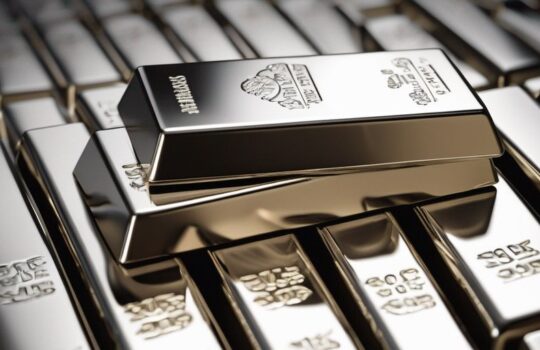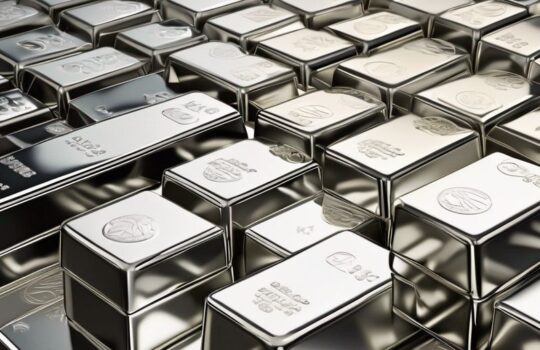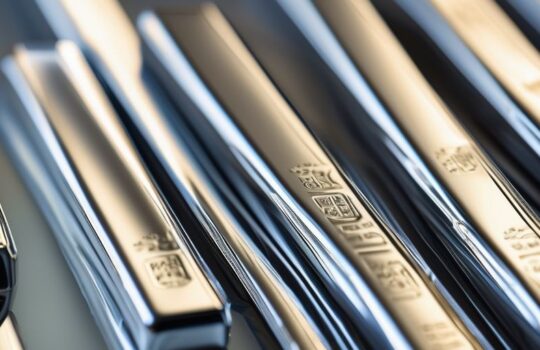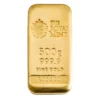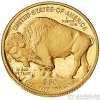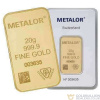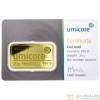How to Sell Silver Bullion in the UK: Tips and Best Practises for Investors
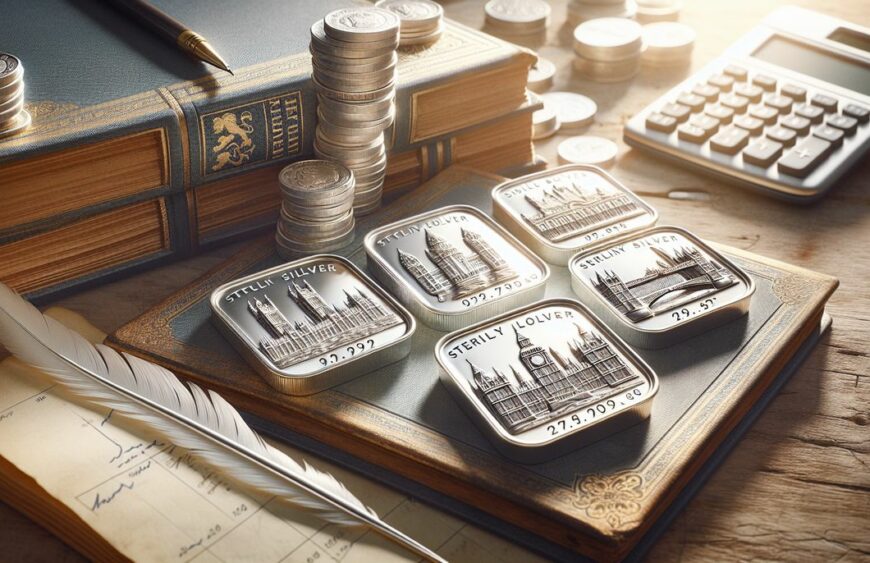
When it comes to selling silver bullion in the UK, investors need to be well-informed and strategic in their approach. Understanding the market dynamics, implementing effective selling strategies, and building trust with buyers and dealers are essential for a successful transaction. This article explores key factors to consider when selling silver bullion in the UK and provides valuable tips for investors.
Key Takeaways
- Timing your sale during peak demand periods can maximise your profit potential.
- Be aware of the tax implications of selling silver bullion to avoid any unexpected costs.
- Choose a reputable selling platform that offers security and fair pricing for your silver bullion.
- Ensure the authenticity of your silver bullion through proper verification methods.
- Establishing a good reputation as a seller can lead to better deals and long-term relationships with buyers and dealers.
Understanding the Silver Bullion Market in the UK
Factors Affecting Silver Bullion Prices
When we consider the factors that influence the prices of silver bullion in the UK, we must acknowledge the complexity of the global market. Supply and demand are the primary drivers, with industrial usage, investment demand, and mining production playing significant roles. For instance, the electronics industry’s demand for silver can significantly impact prices due to its use in various components.
Another critical factor is the economic stability. During times of financial uncertainty, investors often turn to silver as a safe haven, which can drive up prices. Conversely, a strong economy might see a decrease in silver investment as confidence in traditional assets grows.
We should also be aware of geopolitical events that can cause fluctuations in silver prices. Tensions between countries, trade agreements, and sanctions can all affect the availability and desirability of silver as an asset.
It’s essential to stay informed about the current events and market trends to anticipate changes in silver bullion prices effectively.
Lastly, let’s not forget the influence of currency values, particularly the strength of the British Pound against other currencies. A weaker Pound can make silver more expensive for UK buyers, while a stronger Pound can have the opposite effect.
Here’s a quick list of factors to keep an eye on:
- Global industrial demand
- Investment trends
- Mining output
- Economic indicators
- Geopolitical events
- Currency fluctuations
Key Players in the UK Silver Bullion Market
In the UK, the silver bullion market is vibrant and diverse, with several key players that we must be aware of. The Royal Mint is a significant entity, not only minting coins but also offering bullion services. Besides government mints, there are prominent bullion dealers and brokers who facilitate the buying and selling of silver. These include well-established names such as BullionByPost, Sharps Pixley, and Atkinsons Bullion.
When we consider the landscape of the market, it’s essential to recognise the role of online platforms that have emerged as influential players. These platforms provide a convenient way for investors to trade silver bullion, often with competitive pricing and a wide range of products.
- The Royal Mint
- Bullion Dealers (e.g., BullionByPost, Sharps Pixley)
- Brokers
- Online Trading Platforms
It’s crucial for us to understand the dynamics between these players, as they can significantly impact the liquidity and pricing of silver bullion in the UK market.
Trends in Silver Bullion Investment
In recent years, we’ve observed a surge in interest towards silver bullion as an investment. This is partly due to its affordability compared to gold, making it accessible to a wider range of investors. The rise of online trading platforms has also made silver more liquid, allowing for easier buying and selling.
Demand for silver bullion often fluctuates based on industrial use, particularly in electronics and solar panels. As technology advances, this demand is expected to grow, potentially increasing the value of silver bullion as an investment.
- Economic uncertainty and currency fluctuations often drive investors towards precious metals.
- The growing interest in sustainable and ethical investments has seen a rise in silver recycling initiatives.
- Collectible silver items have also gained popularity, with some investors focusing on limited edition coins and bars.
We must be mindful of the fact that while trends can indicate potential growth, the market remains unpredictable. Investment in silver bullion should be approached with a strategy that accounts for both current trends and historical performance.
Selling Silver Bullion: Strategies and Considerations
Timing Your Sale for Maximum Profit
When we consider selling our silver bullion, timing is everything. The market for silver fluctuates, and it’s crucial to sell when prices are high. We must stay informed about the market trends and economic indicators that can affect silver prices, such as inflation rates, currency strength, and industrial demand.
To make the most of our investment, we should monitor silver spot prices regularly. A good practise is to set a target price at which we’re willing to sell, and be ready to act quickly when the market reaches that point. Here’s a simple list to keep in mind:
- Stay updated with daily silver price movements
- Set a realistic target sale price
- Be prepared to sell promptly
Remember, patience can be just as important as timing. While it’s tempting to wait for the peak, holding out for too long can result in missed opportunities.
Finally, it’s worth noting that various platforms, including websites with page offers for a variety of silver bars, can be a resource for gauging current demand and price levels. These platforms often provide contact information and a shopping cart for ease of transaction, which can be particularly useful when the time comes to sell.
Navigating Tax Implications
When we decide to sell our silver bullion, understanding the tax implications is crucial. Capital Gains Tax (CGT) is a key consideration for investors in the UK. If the total gain from selling silver bullion exceeds the annual exempt amount, we must report and pay CGT. However, certain types of silver bullion, like British legal currency coins, are CGT exempt.
To ensure we’re compliant with tax regulations, we should keep detailed records of all transactions. This includes the date of purchase, the amount paid, and the sale price. Here’s a simple checklist to help us stay organised:
- Record the purchase date and price of the silver bullion
- Keep receipts or documentation for proof of purchase
- Track the sale date and price when you decide to sell
- Calculate the total gain to see if it exceeds the CGT exemption limit
Silver is a valuable asset, and we must treat it as such in our tax returns. By being diligent with our records and aware of the tax laws, we can avoid any unwelcome surprises from the HM Revenue and Customs (HMRC).
It’s essential to consult with a tax professional if we’re unsure about the tax implications of selling our silver bullion. They can provide tailored advice to ensure we’re making the most of our investment while remaining within the legal framework.
Choosing the Right Selling Platform
When we decide to sell our silver bullion, selecting the appropriate platform is crucial. Online marketplaces offer convenience and a broad audience, but it’s essential to consider the fees and security measures in place. On the other hand, selling directly to dealers can be more straightforward, and you might negotiate better prices.
- Online Marketplaces (e.g., eBay, BullionByPost)
- Pros: Wide reach, competitive pricing
- Cons: Seller fees, potential for scams
- Local Coin Shops
- Pros: Immediate transactions, personal service
- Cons: Limited market, possibly lower offers
- Auction Houses
- Pros: Potential for higher bids
- Cons: Longer process, commission fees
It’s imperative to weigh the pros and cons of each platform to ensure we maximise our returns. Remember, the goal is to turn our precious metals into profit effectively.
We must also be mindful of the platform’s reputation. Choose a reputable broker with low fees and a quality trading platform. This will not only enhance the selling experience but also help in establishing trust with potential buyers. Accurately evaluating the value of our silver is another step towards maximising profit.
Building Trust with Buyers and Dealers
Ensuring Authenticity of Your Silver Bullion
When we decide to sell our silver bullion, the first step is to ensure its authenticity. This not only protects the buyer but also safeguards our reputation as trustworthy sellers. To assist in this process, we’ve compiled a list of measures that should be taken to verify the authenticity of our silver bullion.
- Conduct a thorough visual inspection for any signs of wear or tampering.
- Measure the dimensions and weight to ensure they match the specifications of genuine bullion.
- Utilise specific gravity tests to confirm the density is consistent with pure silver.
- Employ non-invasive testing methods such as ultrasound or X-ray fluorescence (XRF) analysis.
It’s crucial to have all the necessary documentation ready, including certificates of authenticity and purchase receipts. These documents are often the first thing a savvy buyer will inquire about.
By taking these steps, we can confidently present our silver bullion to potential buyers, knowing that we have done our due diligence. Remember, the integrity of the sale hinges on the perceived authenticity of the product. Therefore, it’s in our best interest to be meticulous in this regard.
Establishing Credibility as a Seller
When we decide to sell silver bullion in the UK, establishing our credibility is paramount. Trust is the cornerstone of any transaction, especially in the precious metals market. To ensure potential buyers have confidence in us, we must be transparent about the history and condition of our silver bullion.
Documentation is key in this process. Providing certificates of authenticity, purchase receipts, and any assay information can significantly bolster our reputation. Here’s a list of documents that can aid in establishing credibility:
- Certificate of Authenticity
- Purchase Receipts
- Assay Reports
- Detailed Photographs
By maintaining a clear record of provenance and ensuring our bullion is well-documented, we not only build trust with buyers but also potentially increase the value of our silver.
It’s also beneficial to engage with well-known and respected online forums and communities. Sharing our knowledge and experiences can position us as informed sellers within the market. Remember, a good reputation once established, opens doors to repeat business and referrals, which are invaluable in the bullion market.
Negotiating Fair Prices
When we approach the negotiation table, it’s crucial to have a clear understanding of the silver bullion market value. Being well-informed is our strongest asset in negotiating fair prices. We must be prepared to articulate why our silver is worth the asking price, taking into account factors such as purity, weight, and current market demand.
- Research the current market price for silver bullion
- Know the specifics of your silver’s purity and weight
- Be ready to explain your price point
In negotiations, patience is a virtue. We should not feel pressured to make a quick sale if the offers do not meet our expectations. It’s better to wait for the right deal than to undersell our investment.
Remember, the goal is to achieve a win-win situation where both parties feel satisfied with the transaction. By maintaining a professional demeanour and being open to reasonable counter-offers, we can foster a positive selling experience and potentially build lasting relationships with buyers and dealers.
Conclusion
In conclusion, selling silver bullion in the UK requires careful planning and adherence to best practises. Investors should consider factors such as market conditions, pricing strategies, and reputable buyers to ensure a successful transaction. By following the tips and guidelines outlined in this article, investors can navigate the process of selling silver bullion with confidence and maximise their returns. Remember, knowledge and preparation are key when it comes to selling silver bullion in the UK.
Frequently Asked Questions
How do I determine the current market price of silver bullion in the UK?
You can check online platforms, financial news sources, or consult with reputable dealers to get the latest market prices for silver bullion.
What are the advantages of selling silver bullion in the UK compared to other investment options?
Silver bullion offers a tangible asset that can act as a hedge against economic uncertainty and inflation, providing a safe haven for investors.
Are there any restrictions or regulations when selling silver bullion in the UK?
It’s important to be aware of tax implications and compliance with anti-money laundering regulations when selling silver bullion in the UK.
How can I verify the authenticity of silver bullion before selling it?
Look for reputable hallmarkings on the bullion, consider third-party authentication services, and only deal with trusted dealers to ensure authenticity.
What factors should I consider when choosing a selling platform for my silver bullion?
Consider factors such as fees, security measures, reputation, and ease of use when selecting a selling platform for your silver bullion.
How can I negotiate fair prices when selling silver bullion to buyers or dealers?
Do your research on current market prices, be prepared to negotiate based on market conditions, and maintain clear communication to ensure a fair deal for both parties.



